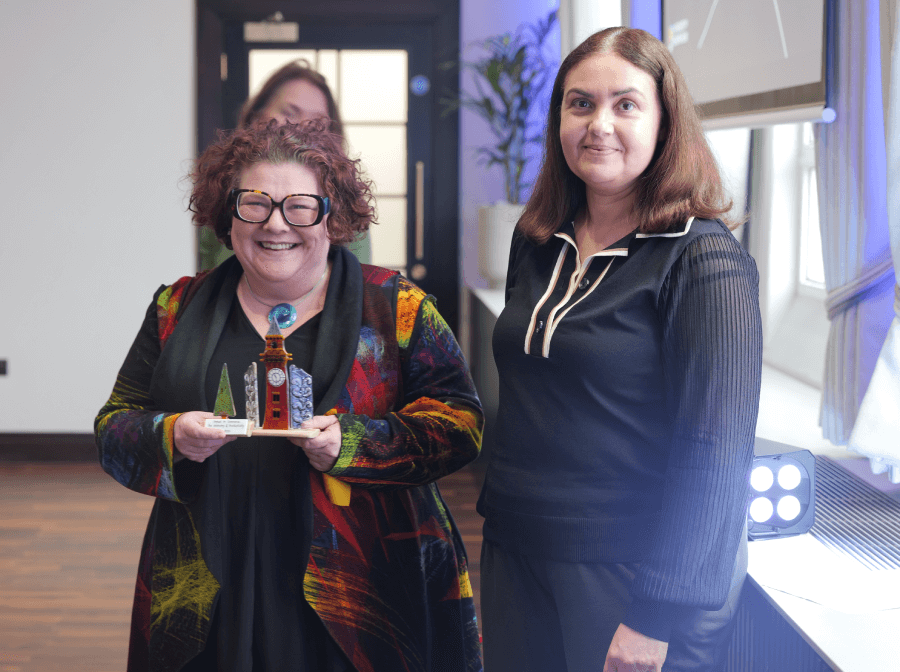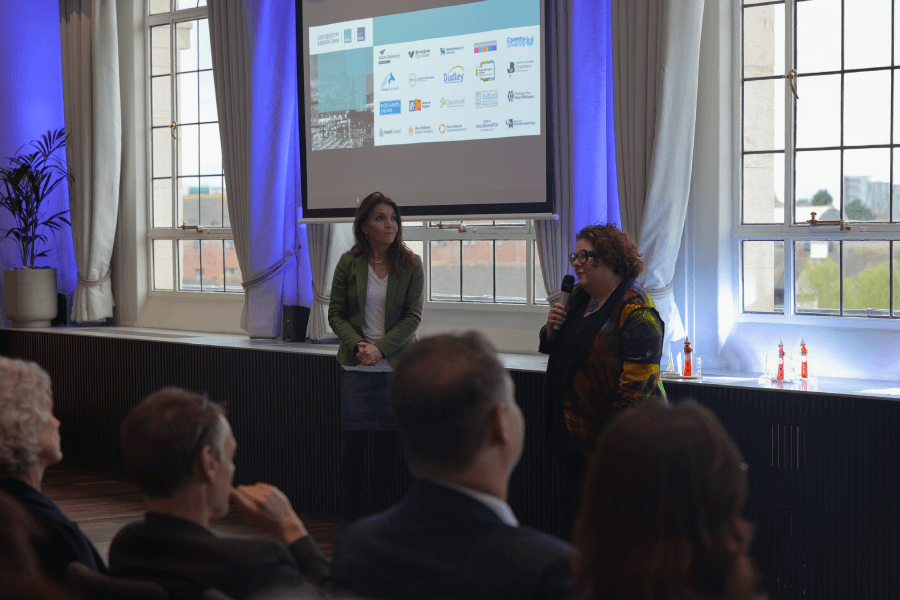
Following the success at the 2024 Impact Awards, City-REDI reflects on the team’s influential research on economics, commerce and productivity.
The University of Birmingham performs cutting-edge research in a variety of fields. No two projects are the same, but they all require significant amounts of time and planning to ensure that our research has civic and global benefits.
The Impact Awards are held annually. They acknowledge the achievements of staff who deliver life-changing research, and this year, on 11 April City-REDI won the 2024 Impact Award on Commerce, the Economy and Productivity.
Delivering Impact
Since 2015, the City-REDI team has worked with regional stakeholders to deliver significant impact, including the West Midlands Combined Authority (WMCA), the 7 local authorities in the WMCA area and those across the West Midlands region, the Midlands Engine, universities in the region, the West Midlands Growth Company and the Greater Birmingham Chambers of Commerce.
We have supported YPERN and InsightsNE as place-based civic investments, and also ESRC and Research England with WMREDI, which was named as a centre of good practice in the recent Local Policy and Innovation Partnership call.
City-REDI has worked closely with central government, particularly the Department for Levelling Up, Communities and Housing (DLUHC), Department for Science Innovation and Technology (DSIT) and HM Treasury across numerous projects, all with the common purpose of ensuring the University of Birmingham is maximising its civic impact and contributing to the delivery of the 2030 Strategy.
Work in the West Midlands
At the regional level, we’ve worked closely with local government and other partners around the West Midlands. Annually we produce the Birmingham Economic Review with Greater Birmingham and Solihull Chamber of Commerce. It provides an in-depth exploration of the economy of Birmingham and a high-quality resource for informing research, policy and investment decisions.
Through WMREDI and its partners, we provide economic analysis of the West Midlands to help advice policymakers in the region.
The State of the Region Reports were produced for Andy Street, the West Midlands Mayor and the West Midlands Combined Authority (WMCA). They aimed to provide an honest reflection of the region at the time of publishing, as well as looking forward to some of the challenges in the future.
In response to the pandemic, we produced the West Midlands Economic Impact Monitor. This weekly briefing was used extensively by the Mayor, the WMCA, local government and other economic actors in the region in developing policy responses to Covid-19.

Work with Central Government
We have engaged alongside various government departments on sector-specific projects including the Business and Professional Services sector, cluster data and analytics, developing the place chapter of the Treasury Green Book Guidance, a document issued by HM Treasury on how to appraise policies, programmes and projects. We also helped in overseeing and commenting on further guidance amendments. This includes a review of place investment by DLUHC, an assessment of training provision, and a review of levelling up funding bids during rounds 1 and 2.
Work across the University of Birmingham
Through innovative approaches to civic responsibilities, we have had an impact on local economies, decision-making, investment, policy, and devolution practice, maximising the University’s role as a civic university. Our work with partners has helped to secure direct investment for key regional partners and the University to enhance local innovation and business environment by providing business case advice and development for projects including Midlands Engine, Tyseley Energy Park, Rail Innovation and Testing Hub, West Midlands Health Technology Innovation Accelerator, and Advanced Ceramics 4.0.
In 2021, our impact was recognised in a British Academy case study on Place-Based Approaches to Research Funding:
“There may also need to be an increase in analytical capacity within regional institutions. Research conducted to inform the development of Local Industrial Strategies shows that data access and analysis capabilities are unequally distributed across the country. One positive example of building capacity and mobilising university input is Research England’s support in setting up the West Midlands Regional Economic Development Institute (WMREDI) at University of Birmingham. WMREDI works in partnership with the West Midlands Combined Authority to bring a practical research and intelligence function to the economic benefit of the region.” (pg13)
Together, these initiatives are helping to ignite pivotal sectors within the region while underscoring City-REDI’s impact as a facilitator and provider of technical assistance. Our involvement has helped with notable joint endeavours that align with the university’s wider civic mission to support inclusive economic development.
This blog was written by City-REDI / WMREDI, University of Birmingham.
Disclaimer:
The views expressed in this analysis post are those of the author and not necessarily those of City-REDI / WMREDI or the University of Birmingham.
